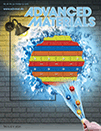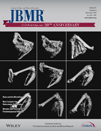 Researchers have retracted their third paper due to missing original data, following an investigation at their former institution in New York.
Researchers have retracted their third paper due to missing original data, following an investigation at their former institution in New York.
We’ve previously reported on two retractions of papers co-authored by Bhagavathi Narayanan and Narayanan K. Narayanan, previously based at the New York University (NYU) School of Medicine. The studies were pulled when the pair couldn’t provide original images to investigators at NYU School of Medicine. One author has blamed the lack of original data on the abrupt closure of her previous institution in 2004, after it allegedly misspent millions in federal grants.
However, the latest retraction affects a paper published eight years later in the International Journal of Oncology. Its coauthors include Bhagavathi Narayanan, Narayanan K. Narayanan and Rajkishen Narayanan; we haven’t been able to uncover if there is a relation between them.
A spokesperson for the NYU School of Medicine sent us this statement: Continue reading Authors retract third cancer paper for missing original data




 A California court ruled that fitness empire CrossFit can proceed to trial with its lawsuit against a competitor, alleging it published falsified data that hurt the company’s reputation, according to recently released court documents.
A California court ruled that fitness empire CrossFit can proceed to trial with its lawsuit against a competitor, alleging it published falsified data that hurt the company’s reputation, according to recently released court documents. The University of Cologne has conducted an investigation into the research of Tina Wenz, and determined that six papers should be pulled due to scientific misconduct.
The University of Cologne has conducted an investigation into the research of Tina Wenz, and determined that six papers should be pulled due to scientific misconduct. A bone researcher based in Japan
A bone researcher based in Japan 
